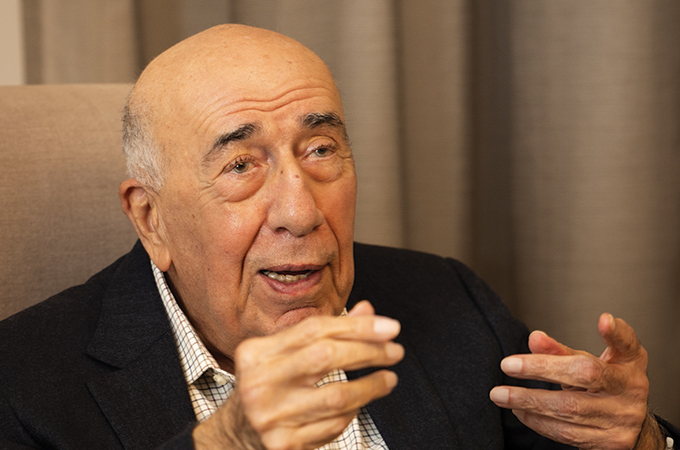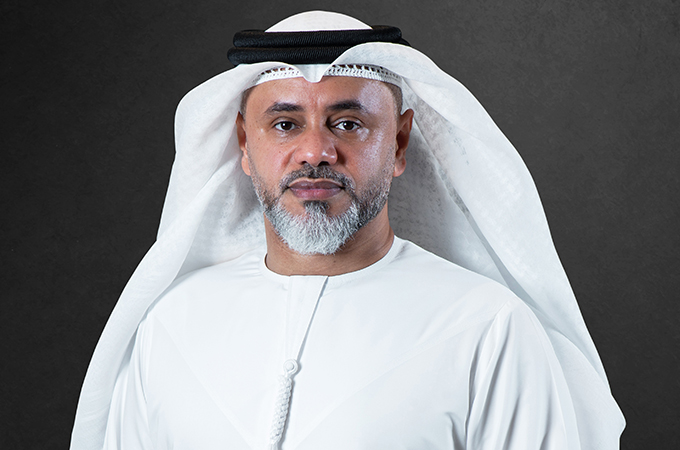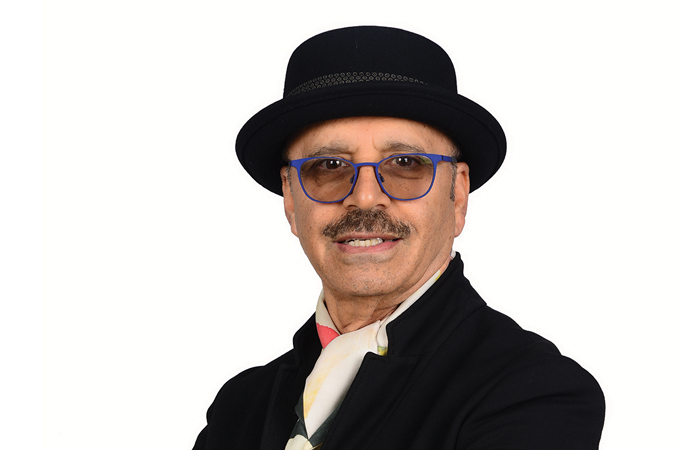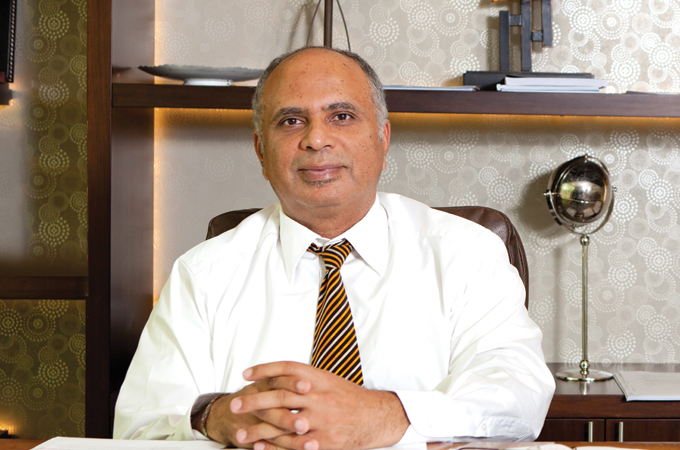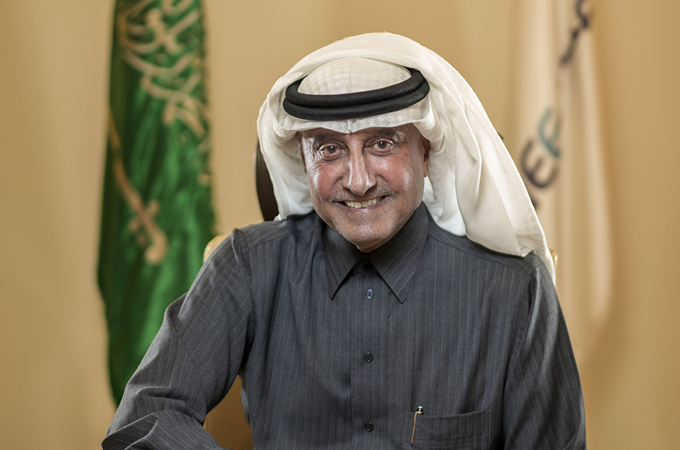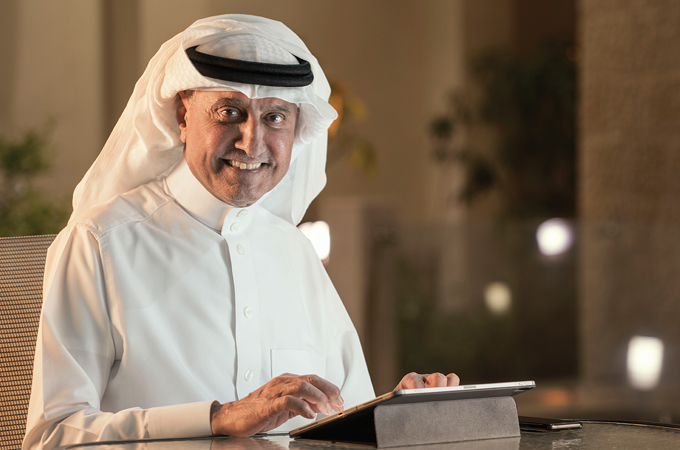Summer 2015
Prince Bandar continues to facilitate the King Faisal Foundation’s initiatives in the kingdom, as he looks to secure the organisation’s future and carry its philanthropic vision forward
His Highness Prince Bandar bin Saud bin Khalid Al-Saud has long been associated with the King Faisal Foundation, first as director of public relations, then deputy managing director and more recently as secretary general.
One of the largest philanthropic organisations in the world, the foundation was established in 1976 by the sons and daughters of the late King Faisal, the greatly respected third king of Saudi Arabia who reigned from 1964 to 1975. An innovative thinker and deeply religious man, King Faisal combined inspirational leadership, sound management and deep respect for Saudi Arabia’s heritage and culture.
Prince Bandar, a grandson of the late king, continues a progressive and innovative approach to philanthropy based on humanitarian values.
When the foundation was established, the idea of creating a dynamic philanthropic organisation as a memorial was a dramatic departure from the prevailing Middle East tradition. Instead of restricting their efforts to one easily manageable area of interest, the founders accepted the challenge of taking on a broad range of Islamic, cultural, and charitable endeavours which exemplified King Faisal’s humanitarian values.
The Riyadh-based foundation maintains financial autonomy drawing from its extensive and increasing portfolio of investments and income-producing assets to generate the revenues necessary to create an enduring institutional legacy that preserves the late king’s devotion to noble purposes.
According to Prince Bandar, it is not just a matter of donating to a worthy cause as the foundation always looks to deliver projects that are both practical and self-supporting, helping to make communities self-sustaining and those less fortunate to be more self-reliant. Aid is disbursed across the world through grants by the foundation for scientific research, scholarships for post-graduate studies, and targeted technical assistance programmes.
The concept of active asset management is fundamental to the foundation and reflected in its financial probity, strong financial balance sheets and long-held relationships with leading Saudi banks. The foundation has a policy of developing long-term strategic partnerships and alliances that match its business ethics and ideals as well as its operating efficiencies.
“The foundation’s philanthropy has never been simply to provide financial aid but has a much wider mandate including self-reliance that contributes something of even greater value to its beneficiaries. The common thread is our determination to improve the human condition by bringing hope to the less fortunate, making the world a better place, and at the same time preserving Islamic culture,” Prince Bandar says.
“Self-reliance is best promoted through education, healthcare and the practical improvement of living standards. In order to meet the increasing financial demands across a diverse and growing range of projects, revenue sources must continually be secured and enhanced by the best business and operational practices, drawing from the foundation’s portfolio of income-generating assets,” he continues.
Very much a people person, Prince Bandar is decisive and adopts a vertical management approach to the ‘business of philanthropy’ placing complete trust in his professional advisers and corporate staff where teamwork is paramount to ensure that the foundation’s strategies and innovative thinking is brought to life.
Energetic and very much a living and evolving institution, the foundation looks ahead by implementing innovative investment strategies and development projects.
The deep thinking of the foundation is reflected in the guiding principles of the annual King Faisal International Prize awarded in Service to Islam, Islamic Studies, Arabic Language and Literature, Medicine and Science.
The prestigious international ceremony, held at the grand Al Faisaliah Hotel, is dedicated to men and women in the various disciplines that have been acknowledged as making a positive difference to the world.
As Prince Bandar explains, there is an underlying theme for all the foundation’s development programmes – whether it is tourism, the hospitality sector, education or other areas of humanitarian philanthropy.
For example, in education the foundation never acts in isolation and undertakes key responsibilities in various projects including the King Faisal School in Riyadh’s diplomatic quarter, the Prince Sultan Colleges for Tourism and Business in Abha and Jeddah, the Effat University for Women in Jeddah and various educational advisory boards.
Alfaisal University is very much a jewel in its crown. The private not-for-profit institution was founded in 2002, reflecting the foundation’s strong commitment to learning, research, applied technology and the teaching of practical knowledge.
The first intake of student engineers was in 2008 when the co-educational university was inaugurated on the campus in the grounds of King Faisal’s palace. There are also colleges of business, medicine, life sciences, and electrical, mechanical, industrial and architectural engineering, all located on the campus
As a chairman of the executive committee and a member of the board of trustees, Prince Bandar considers that the innovative student-centred university is pushing the education envelope in providing specialist practical tuition for a knowledge-based economy to complement government provision in these key areas of higher education.
“As I mentioned, self-reliance is a key to our philanthropic approach to improve living standards and we focus on education. We are educating people to be engineers, doctors, medical practitioners and equipping people with a proper education to be self-sufficient and capable of helping themselves with sustainable growth and the aspiration to help others. Part of our work is to reach across the world and we have many programmes, many research projects all looking to benefit in a constructive way,” he says.
From his corporate offices in the iconic high-rise Al-Khairia headquarters in the heart of Olaya, Prince Bandar overlooks the spectacular Al Faisaliah Center in which he played such a significant and meticulous role in planning the infrastructure, finance and marketing of a world-class development.
The modernistic Al-Khairia building (King Faisal Foundation Building) was designed by one of the most significant architects of the 20th century, the late Japanese architect Kenzo Tang. The monumental building is the administrative heart of the foundation where many of its activities take place, and includes the King Faisal Center for Research and Islamic Studies (established by the King Faisal Foundation in 1983) with its libraries that contain a magnificent collection of books and literature for Islamic Studies and Islamic civilisation.
Meanwhile, the King Faisal Foundation is now embarking on a massive construction and building programme to deliver on the phased master-plan for the Al Faisaliah area, which Prince Bander estimates will cost up to $2 billion in the next few years.
Work begins this summer in renovating phases of the mixed-use centre including the Al Khozama Center which is to become the new Hotel Al Khozama. Later, the old property will be demolished and there will be a raft of new developments including new public areas, recreation facilities, a massive expansion of the shopping mall and renovation of Al-Khairia. In addition, Al Faisaliah Hotel will have a major renovation and refit over the next two years.
Prince Bandar also talks about leadership and taking the foundation to the next stage of its development to maintain success in its philanthropic endeavours as it approaches four decades of institutional life.
“I very much believe in new blood and the development of new ideas and innovative thinking. In fact, I am very much involved in introducing a new generation into the foundation during a period of transition. Leadership is very important and it is not enough just to look back on what we have achieved already but for others to bring their ideas into play to carry our philanthropic vision forward.”
He continues: “It is very important for many reasons to ensure that the foundation continues to make its contributions to the world not only in terms of philanthropy and charitable works but also implementing personal and social developments and encouraging economic opportunity and creating value.
“We promote self-reliance as a key aspect of our approach to philanthropy, and as an organisation we must look closely at how to deliver our vision in what is an increasingly complex world. We have always set our ambitions very high particularly in maintaining income-producing assets in the foundation. We see our role as setting different standards for our investment projects in terms of income generation as we see this as both the mechanism and the means to realise our philanthropic objectives by achieving quality and creating something of value.”
Al Faisaliah Center cannot be perceived as just a commercial project but much, much more in terms of being an income-generating asset and an economic stimulant with the emphasis on developing a commercial heart to this part of Riyadh. At the same time, it is iconic and world-class in all respects, he points out.
“There is cultural change and a positive effect from Al Faisaliah, reflecting changing business practices and the development of exhibitions and conferences as the city evolves and keeps upgrading itself. The mixed commercial development is remarkable but the money is not the only thing that we are looking at.
“We are always looking to add value to the city to contribute, to reflect, and give back to the city the finer aspects of our heritage, world-class buildings and well-placed libraries. In fact, our goals are to create a legacy and also an institution which will have a life of its own that will outlast my lifetime and that of others and will continue moving forward to meet our objectives in the future,” he says.
The foundation is a majority shareholder in Al Khozama Management Company (Al Khozama), which was established in 1995 and acknowledged as a pacesetter in the ownership, development and management of top-quality hospitality properties including retail, commercial and residential interests.
Al Khozama manages and operates five-star properties across Saudi Arabia including Al Faisaliah Hotel and Hotel Al Khozama in Riyadh and later this year, the Al Faisaliah Hotel and Resort in Durrat Arriyadh, the upmarket gated residential community north of Riyadh, a first for the city.
In addition, Al Khozama manages and operates Al Bustan residences in Riyadh, Bay La Sun Hotel and Marina in the King Abdullah Economic City development north of Jeddah, and Al Shohada Hotel and the Manazel Al Ain Grand Hotel in Makkah.
From April 1, 2015, Al Khozama assumed direct management of its various assets drawing from its vast hospitality experience, a key milestone for the company. The ability of Al Khozama to manage its own assets is part of a grand plan by Prince Bandar to align the growth and destiny of the company with the spectacular increase in Saudi Arabia’s business tourism and leisure sectors and further evolve the Al Faisaliah and Al Khozama brands into a growing pipeline of developments and income-generating assets.
Saudi Arabia needs many more hotels for domestic travellers, business tourists and religious tourism and Al Khozama has the proven capabilities and hospitality brands commensurate with the best in the world to develop the hospitality sector, according to Prince Bandar.
“Economically, hospitality is very important and we are all working together in government, the hospitality industry, stakeholders, investors and the Saudi Commission for Tourism and Antiquities to shape this growth. Saudi Arabia continues to diversify the economy, and hospitality is an area in which to diversify in the GCC as well as internationally. Al Khozama is developing concepts, planning and looking at the investment strategies, but we are not in a rush. Our duty is to make sure that our plans for investments – possibly in Dubai and a top-class resort in the Maldives – as well as our broader interests in Saudi Arabia always exceed market expectations, fit our business model, and are commensurate with our brand objectives,” he emphasises.
The foundation began developing this prime area of Olaya in 1977 with Al Khozama Hotel, its first operating unit opening in 1978 followed by Al Khairia Center containing the foundation’s corporate offices as well as commercial, educational, religious and residential facilities. By 1984, the foundation had built the Al Khozama Center containing luxury apartments, offices, an auditorium and banqueting halls, also designed by Kenzo Tang and where the new Hotel Al Khozama will be located in a few years.
The Al Faisaliah Center integrates the business tower, the Al Faisaliah Hotel, Al Faisaliah Suites, the retail mall and banqueting hall into a single functional complex. Near the top of Al Faisaliah Tower is the dramatic geodesic sphere that encloses The Globe with its restaurant and function rooms above the breathtaking observation deck. This area was subject to extensive redesign with Prince Bandar closely involved with Lord Foster to ensure that an innovative architectural concept was evolved.
“Often I consider that we can never do enough for what is required in the world but the efforts of the foundation in areas of our concentration can help relieve the pressures and combine with other institutions and initiatives to take part in other solutions. The culture of our organisation is very family oriented and the majority of my staff have been here for many years. They are practical people who have helped build the institution and who bring into play full interaction and allow innovation to flourish,” says Prince Bandar. “We encourage progressive development and we are very ambitious. We are helping create the future and we look to empower our staff and this involves having the right people and the right capabilities.”
Prince Bandar says he has never been slow to offer his opinions when working with the various signature architects such as Lord Foster for Al Faisaliah Centre.
“I was never too shy to tell Lord Foster or others of what we wanted. We welcome detailed discussions and are always looking for not only quality but innovation and value. Currently, we are working with Gensler on the redevelopment of the Al Khozama Centre which forms part of the wider development of extending the shopping mall and remodelling the area. Here in the heart of city we cannot stand still and we are always looking to deliver on quality and sustainable development. We are proactive in setting a different standard in real estate development and do not only consider the commercial aspects of a project in terms of income generation but also seek to achieve quality and create something that will be of enduring pride to all our citizens,” concludes His Highness.



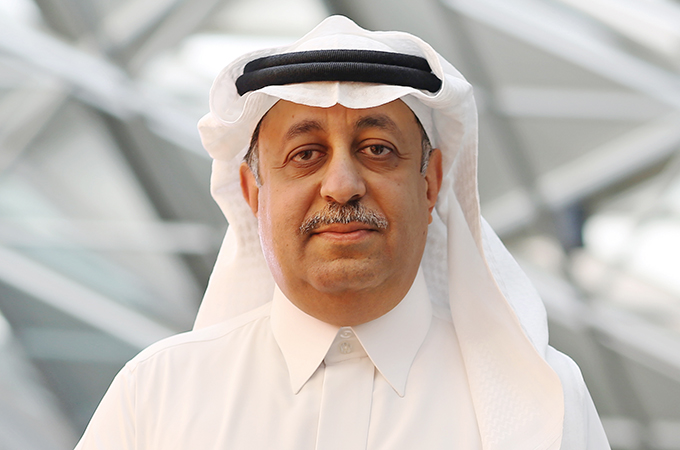
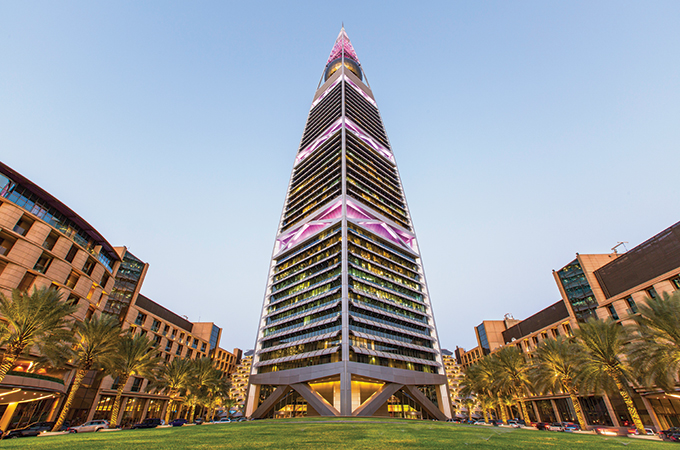
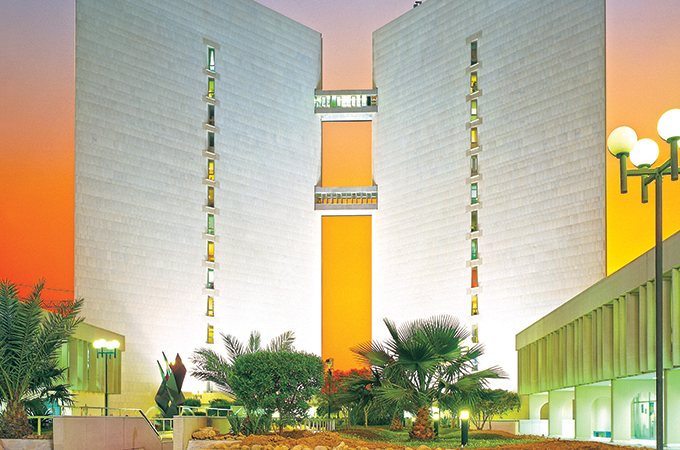
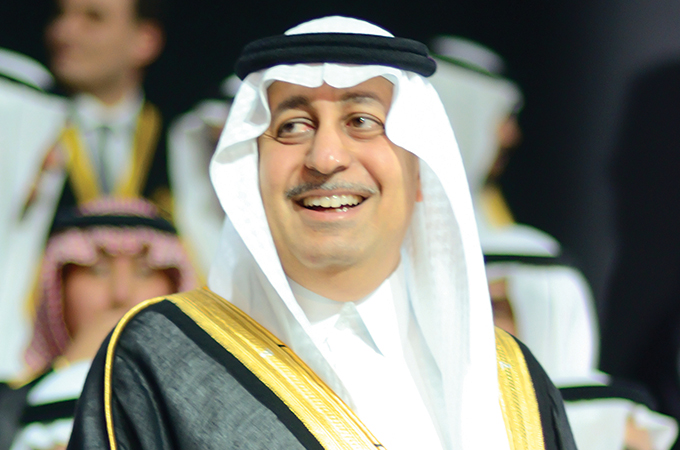
.jpg)
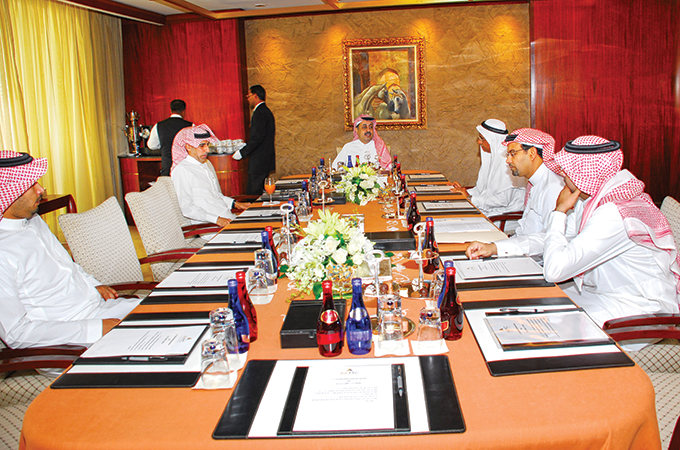
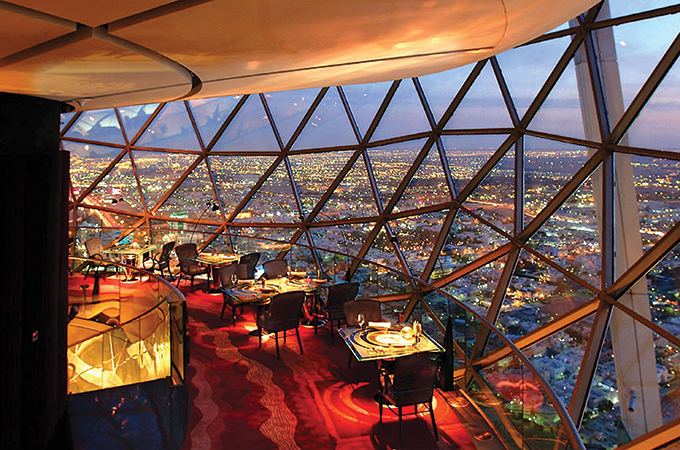

.jpg)
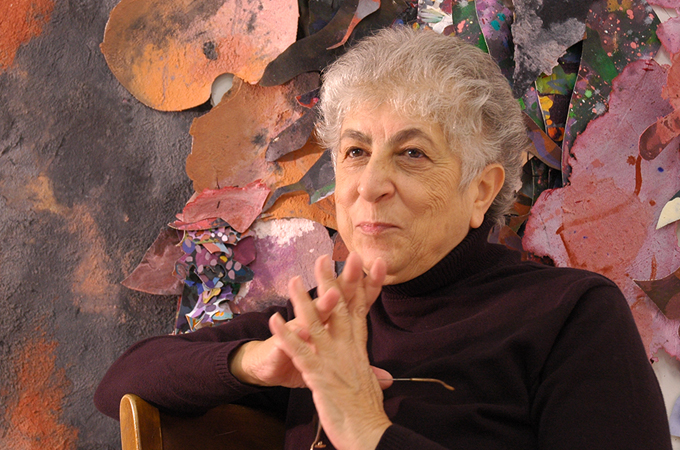
.jpg)
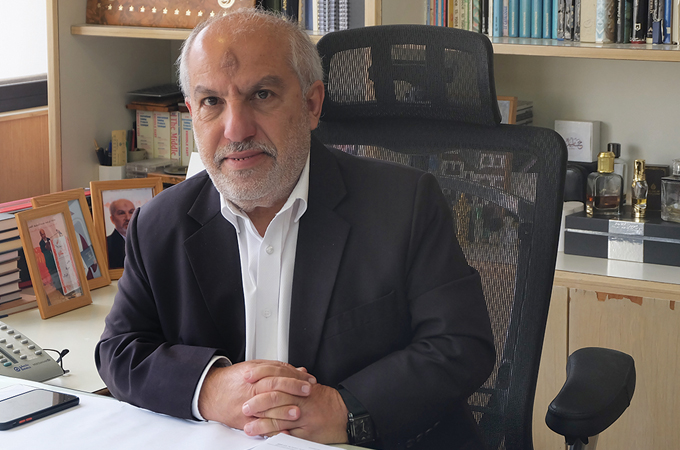
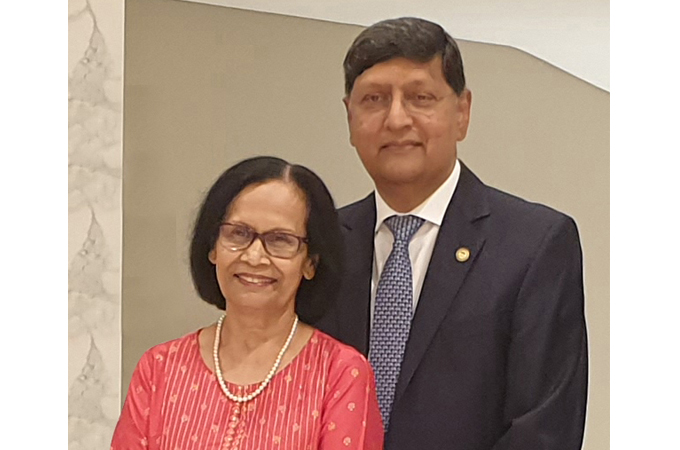
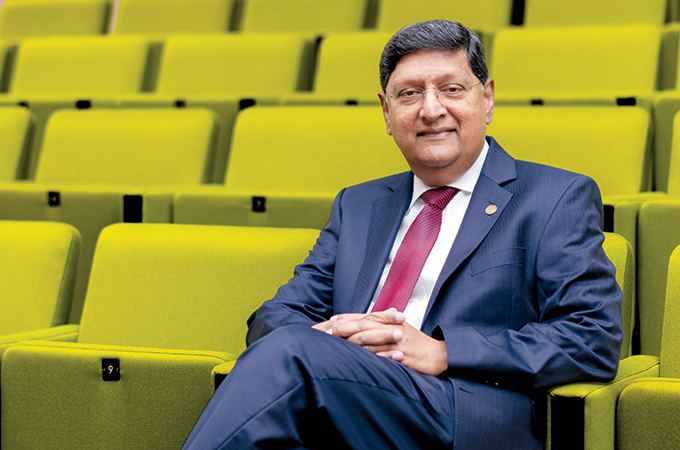
 B.jpg)
